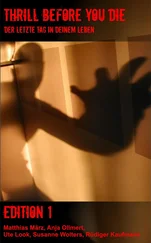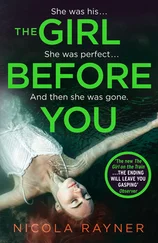These were made of something called vegetan suede, and they looked more like a pair of bedroom slippers for some unintentionally comic British fop than shoes for an ostensibly media savvy spokesperson for an organization headquartered in Manhattan. In the past he had always worn leather-free hiking boots or black canvas sneakers and felt rather hip. He sighed: He’d have to find the time when he returned to work to search out a decent pair of pigskin-free Merrells. Then he sat down on the bed, catching his breath before beginning the task-rich, he knew well, with petty humiliations-of getting dressed.

OH, BUT AS DEMEANING and time-consuming (and painful) as it was to stuff his right arm into the sleeve of his shirt or use his dressing stick to hoist up his khakis, getting dressed was a picnic compared to making his breakfast. Catherine had left everything out for him on the counter, but he still had to craft his meal by himself. The breakfast he envisioned would demand effort both in the preparation and the consumption. The menu? Bran flakes with soy milk, coffee, and fresh honey wheat bread from the bakery around the corner topped with the homemade blueberry jam that one of his mother-in-law’s New Hampshire friends, Marguerite, had given him before he returned to New York.
Spencer sensed that an eight-year-old with two hands easily could make this breakfast-replacing the coffee, of course, with a more appropriate beverage. Apple juice, he decided. Hell, a reasonably resourceful six-year-old could make this breakfast if the bread were already sliced and the soy milk was in a quart container the kid could lift. Nevertheless, Spencer knew he would need the brand-new kitchen tools for the disabled he and Nick had picked out.
He began with the easy part and actually allowed himself a small smile when he managed to open and pour his cereal without spilling more than a dozen flakes around the outside of the bowl. Then he unscrewed the top of the soy milk, and left the container open on the counter. He understood that the real problem he would face with the cereal would come only when he tried to eat it. Though he was now the proud owner of a Good Grips easy-to-hold spoon that was supposed to make it easier for a right-handed person to eat with his left hand (the shaft was as wide and round as a hammer handle), he’d discovered yesterday that he still dribbled more cereal onto the table and into his lap than he managed to bring to his mouth. His left arm and hand still weren’t very strong-despite the hours he’d already spent squeezing his hand exerciser-and their utter lack of coordination continued to fascinate him.
The more difficult part of his breakfast preparation would be slicing the bread, and then spreading that jam with one hand. He would try out his Spreadboard for the first time, a device that resembled a baseball diamond’s home plate, with a pair of plastic guards along the apex against which he would place his bread to hold it still while slathering on the preserves and (perhaps) a little Soy-garine.
Even before he did that, of course, he would have to wedge the jar between his knees and then hope he could unscrew the lid with his left hand. Given the reality that these preserves had never been opened, he had a pretty good sense that the lid would be snug. He shook his head: He should have had Catherine open it for him before she and Charlotte had left for school.
Nevertheless, he had cereal in a bowl and a loaf of bread on the cutting board. Even I can slice fresh bread, he thought to himself, and make my own breakfast.
HE WAS, ALAS, MISTAKEN. In the cab to his office he tried not to focus on the degrading spectacle he would have made if there’d been any witnesses: the bread crushed instead of cut, crumbs on the counter and the floor and (somehow) the dish rack three feet away, soggy clumps of cereal flakes everywhere but in his bowl, the jam jar completely impregnable until finally-half in rage and half in despair-he’d thrown it into the sink, the container banging off the faucet and then (much to his horror) shattering against the white porcelain sides. He honestly wasn’t sure whether it was the faucet or the sink that had actually broken the glass.
Finally he just put his left hand into the box of cereal and grabbed a few fistfuls, and then wiped a wad of bread against the Soy-garine that was starting to melt on the counter. He was astonished at how tired his left arm had become in the failed effort and how much his right side had wound up hurting. The pain, exacerbated he knew by anxiety and exhaustion, was a soaring, white hot stinging in his shoulder and upper back, that-unfortunately-was now so pronounced that his head was starting to ache, his ears were ringing, and he wanted to put his head down in the cab that very moment and vomit.
He took in deep breaths through his nose and tried to concentrate on the sports radio talk station the cabbie was listening to softly on the radio. God, was Don Imus already off the air? Was it already after ten? Had it taken him that long to get dressed and make the kitchen look like a chimpanzee had just tried to make breakfast? When the cab braked abruptly before a red traffic light, he conked his head against the insufficiently padded rear of the front seat, and-despite the sling-his right hand swung forward just enough to cause the pain in his shoulder to slide off the charts for a moment. He heard himself cry out “Shit!” with such a pathetic shrillness to his voice that he grew embarrassed.
But even that embarrassment paled a moment later, when the cab jerked forward with the green light and he was pushed back in his seat. The cattle prod of pain deep inside him simultaneously pressed downward from his shoulder to his back and upward from his neck to his head, and though he brought his left hand to his mouth with impressive rapidity there was no stopping the vomit that was spewing up from his stomach, burning his throat and his mouth and his tongue, and spraying through his fingers like water sent full blast through a partly plugged faucet.
“What the fuck?” the cabbie was saying, “I can’t stop here! What the fuck are you doing?”
He opened his mouth-the acid on his lips a minor annoyance compared to the spikes of agony everywhere else in his body and the humiliation and disgust he felt when he looked down and saw the vomit on the knees of his slacks and the front of his shirt-and heard himself murmur, “Just turn around please. I want to go home.”
Charlotte understood that her father was in excruciating pain most of the time and that he was trying to hide it from her: He didn’t want her to feel any worse than she already did. But she knew how much he hurt. She knew he was popping Percocet and Advil like they were M &M’s, and she doubted fifteen minutes went by when she herself didn’t think in some way about the accident and what she had done. She might recall the blast of the gun-and the feeling that she was flying backward-with a vividness that would cause her to flinch while performing a task as habitual as setting the dinner table or brushing the cats, or while in the midst of an endeavor that demanded serious concentration: reading through the scene from The Secret Garden that she was going to use in her audition for Brearley’s fall musical or trying to decide exactly which of her blouses were appropriate now that she was in the eighth grade and had a full year’s distance from that nightmarish elementary school jumper. She thought her father’s tolerance for pain was downright heroic.
This morning, however, on what they presumed would be his triumphant return to work, she had come across a photo of him in a magazine and for the first time since the accident she had grown angry. Furious. The magazine was four and a half years old, and she was really only skimming it to kill a minute or two while her mother made absolutely certain that Dad didn’t need anything before they left together for Brearley. She’d found the periodical wedged upright into the mass of glossy pulp in the brass magazine rack in the den, the one that sat beside the fireplace they never used.
Читать дальше












